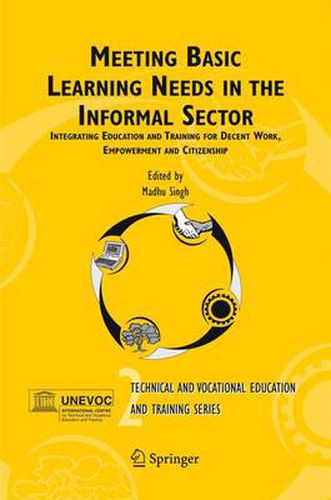Readings Newsletter
Become a Readings Member to make your shopping experience even easier.
Sign in or sign up for free!
You’re not far away from qualifying for FREE standard shipping within Australia
You’ve qualified for FREE standard shipping within Australia
The cart is loading…






This title is printed to order. This book may have been self-published. If so, we cannot guarantee the quality of the content. In the main most books will have gone through the editing process however some may not. We therefore suggest that you be aware of this before ordering this book. If in doubt check either the author or publisher’s details as we are unable to accept any returns unless they are faulty. Please contact us if you have any questions.
In advancing the vision of adult learning articulated at the International Conference on Adult Education (CONFINTEA V) held in Hamburg in 1997, the UNESCO Institute for Education has been conducting studies on the different areas and dimensions of ‘Adult Learning and the Changing World of Work’. One question that has been central to this area is: What constitutes adult learning for those who traditionally secure their survival in the informal economy, as well as for those school leavers and dropouts who are forced to work in this sector? In answering this question, the informal sector or popular economy may be defined in various ways, but there is an increasing recognition that it is a phenomenon that has come to stay and that government policies aimed at economic and social development, including national education and training policies and programmes, should target those who work in this sector. In particular, basic education and continuing education and training are being seen as key to empowering people and as crucial to strategies for reducing poverty. Moreover, there is a growing awareness that education is a human right of fundamental siginificance to promoting decent work and humane living conditions. It is in view of such considerations that UIE and the ILO planned to conduct studies in South Asia (Nepal, Bangladesh, India) to develop an understanding of the quality provision of education and skills development in and for the informal sector.
$9.00 standard shipping within Australia
FREE standard shipping within Australia for orders over $100.00
Express & International shipping calculated at checkout
This title is printed to order. This book may have been self-published. If so, we cannot guarantee the quality of the content. In the main most books will have gone through the editing process however some may not. We therefore suggest that you be aware of this before ordering this book. If in doubt check either the author or publisher’s details as we are unable to accept any returns unless they are faulty. Please contact us if you have any questions.
In advancing the vision of adult learning articulated at the International Conference on Adult Education (CONFINTEA V) held in Hamburg in 1997, the UNESCO Institute for Education has been conducting studies on the different areas and dimensions of ‘Adult Learning and the Changing World of Work’. One question that has been central to this area is: What constitutes adult learning for those who traditionally secure their survival in the informal economy, as well as for those school leavers and dropouts who are forced to work in this sector? In answering this question, the informal sector or popular economy may be defined in various ways, but there is an increasing recognition that it is a phenomenon that has come to stay and that government policies aimed at economic and social development, including national education and training policies and programmes, should target those who work in this sector. In particular, basic education and continuing education and training are being seen as key to empowering people and as crucial to strategies for reducing poverty. Moreover, there is a growing awareness that education is a human right of fundamental siginificance to promoting decent work and humane living conditions. It is in view of such considerations that UIE and the ILO planned to conduct studies in South Asia (Nepal, Bangladesh, India) to develop an understanding of the quality provision of education and skills development in and for the informal sector.